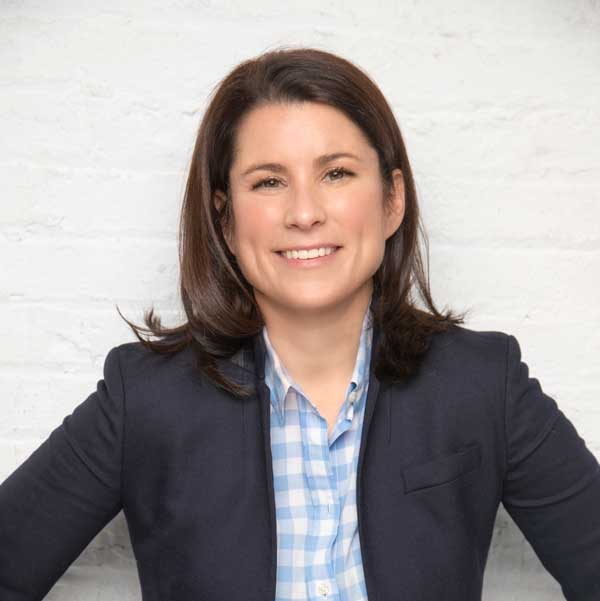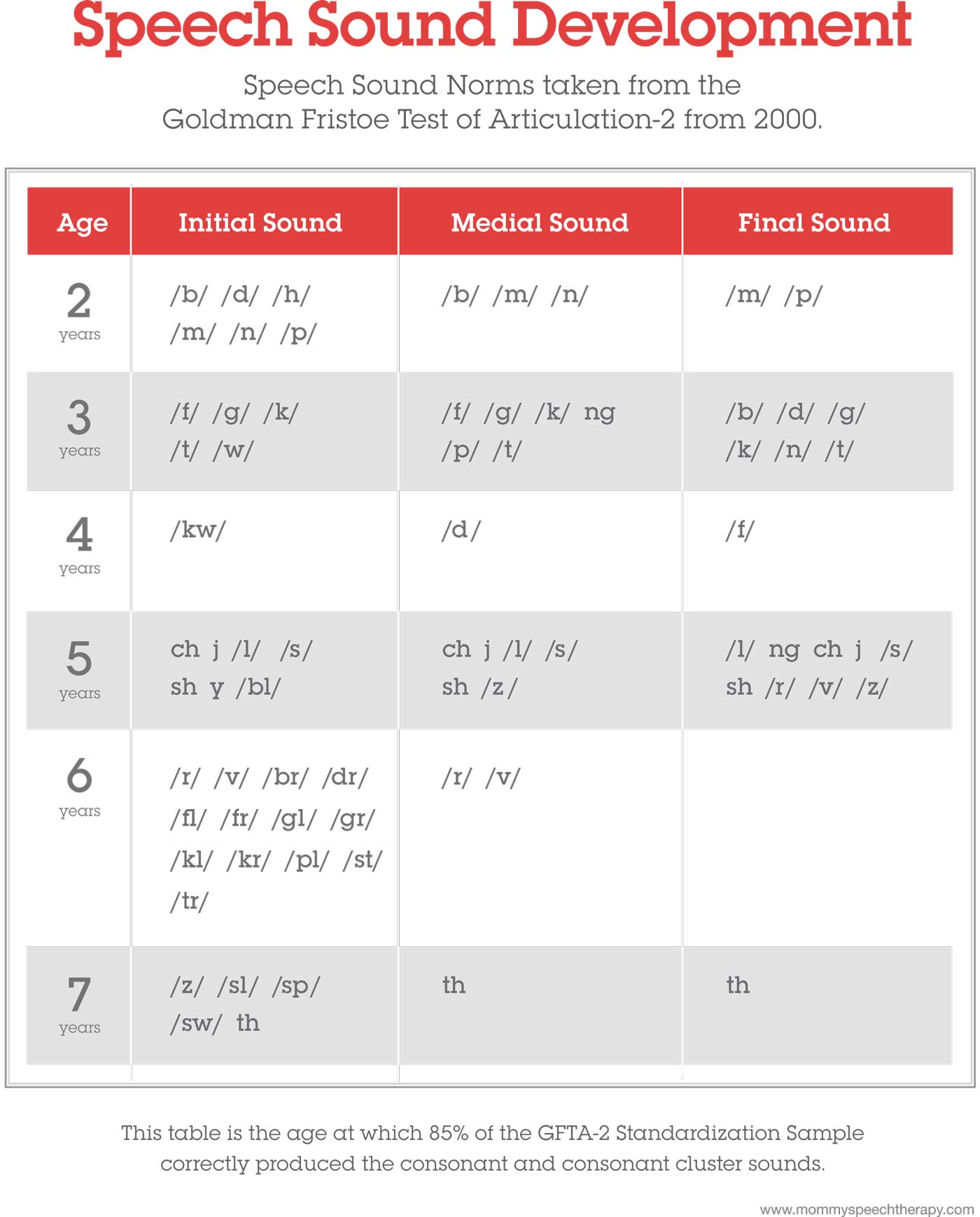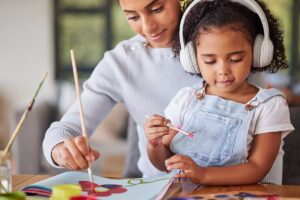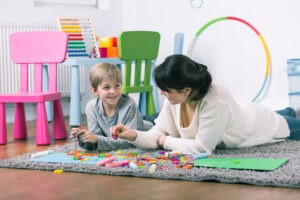Does your child have difficulty saying particular sounds?
Children who struggle with certain sounds can fix speech sound errors during a type of speech therapy referred to as articulation therapy.
What is Articulation Therapy?
During articulation therapy your speech language pathologist will move through a hierarchy of levels, beginning with accurate production of the sound in isolation and moving through all levels until the sound is considered mastered. A speech sound is mastered when a child is able to accurately produce it in conversational speech.
Articulation disorders (aka speech sound disorders) are treated by a pediatric speech language pathologist that specializes in articulation. It is important to find a therapist that is the right fit for your child. During the first session, your child will be evaluated to determine whether speech therapy is recommended. If recommended, your child’s speech language pathologist will outline the treatment plan and expected length of therapy. The frequency of therapy will depend on the severity of your child’s speech sound errors.
Teletherapy for articulation is highly interactive and it’s a an economical, convenient, and effective means of performing a speech therapy session.
During articulation therapy, when using a traditional approach to articulation therapy, your therapist will move through a hierarchy of levels to improve your child’s target sounds. The hierarchy includes (using the “s” sound as an example):
Isolation: Only the target sound.
Syllables: The target sound in syllables. The sound can occur at the beginning or the end of the syllable.
Words: The target sound in words. The target sound will occur at the beginning, middle or end of a word. Some word positions may be more difficult for your child. The speech therapist will work through all of them.
Phrases: The target sound in short phrases.
Sentences: The target sound in sentences of increasing length.
Stories: Your child will be asked to create or repeat a story while accurately producing the target sound.
Generalization: The target sound in conversation and all other contexts of language. Your child will successfully master a sound when accurate production is spontaneous (they no longer need to think about it).
Will speech errors go away on their own?
Depending on the severity of your child’s speech sound errors along with their age, articulation therapy may or may not be recommended. A speech language evaluation should be conducted to determine whether speech therapy is recommended. Speech therapy is recommended if your child’s speech sound errors are not “developmentally appropriate” and are unlikely to resolve on their own.
What if my child’s R’s sound like W’s?
A “W” for “R” sound error is one of the most common speech sound errors. Children should be accurately producing the “R” sound by the time they are 6 years old. In most scenarios, correcting this error will require articulation therapy from a certified speech language pathologist.
What if my child can’t say the S sound?
“S” sounds errors are common speech sound errors. The “S” sound should be accurately produced by the time a child is 7 years old. Sometimes “S” sound errors are related to orthodontic issues. A speech language pathologist can evaluate your child to determine whether speech therapy is recommended.
There is no set time period that your child will spend at each level. Children may learn how to produce the sound by itself in the first or second session, but they may not master the sound at the sentence level for several sessions. Alternatively, some children are able to remediate speech sound errors in only a few sessions.
To determine whether your child would benefit from articulation therapy, contact TherapyWorks. We would be happy to consult with you and let you know whether we recommend an evaluation. Our experienced team of speech language pathologists provides services in-home or via teletherapy.









